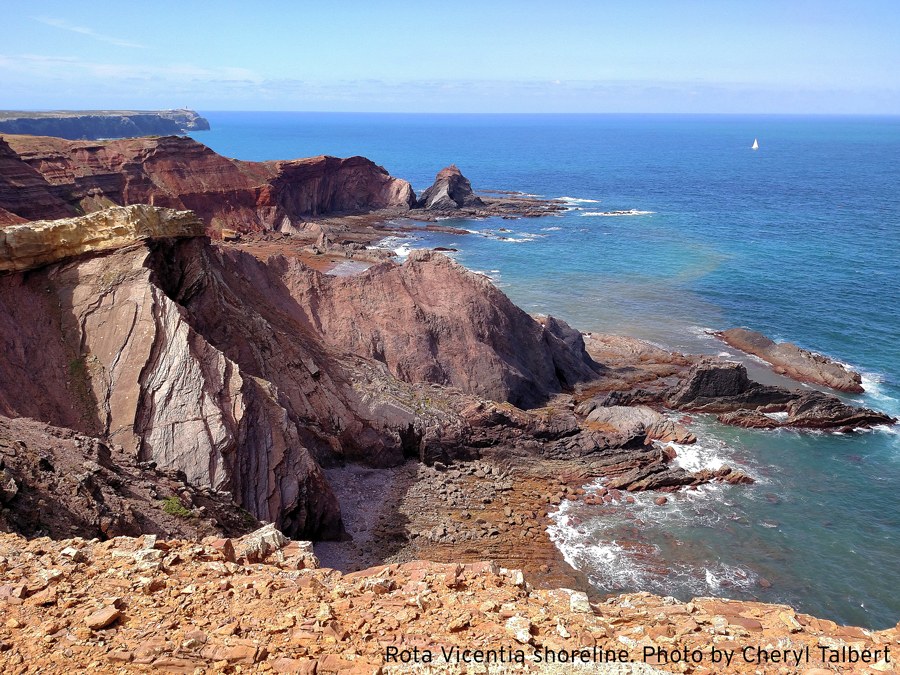
Extreme Fishing: though it’s not likely to be a new Mountaineers activity program anytime soon, it was part of the spring 2017 Rota Vicentina Global Adventure on Portugal’s wild southwest coast. The hardy Mountaineers trekkers on the trip were treated to multiple displays of Extreme Fishing prowess – not to mention feasting on the fruits of the fishermen’s labors!
The province of Alentejo (Ah-lahn-TAY-joo) on the southwest coast of Portugal has for centuries been the home of fishing families plying their trade in its fertile waters, and is considered by many to be the country’s gastronomic heart. We’re talking an amazing variety: turbot, ray, sea bass, sea bream, mackerel, octopus, prawns, eels, and the treasured percebes, or gooseneck barnacles (yes, barnacles!). Fishing is a small-scale enterprise here, with families working their own treasured section of surf-pummeled rock and churning water to make their living over generations. And while there certainly were your typical fisherman going out in small boats with nets and traps to harvest their daily catch, we also saw solo fishermen dropping their lines from perches on knobs jutting from cliffs hundreds of feet above the sea, or descending near-vertical cliffs to roadless coves to paddle boogie boards out through the fierce surf to catch fish with spear-guns.
Most intrepid of all are the percebeiros, or barnacle fishermen. One must have a license to harvest gooseneck barnacles along the Alentejo coast, and only 90 licenses are granted, only to locals. It’s a good living if you can survive it. In Portugal, these prized bitesize mollusks (you peel the rubbery skin from the short neck to uncover the salty morsel of meat) can sell for as much as 125 euros/kilo ($70/pound) but people are said to perish each year in their pursuit. That’s because gooseneck barnacles grow on jagged boulders and shards of rock that jut out into the ocean, continually pummeled by waves. To harvest them, percebeiros often must climb down the cliffs to the shore with the help of a rope, and chisel the creatures off the rocks between the crashing waves. Some percebeiros even dive down through the churning water to find their valuable prey. We met one percebeiro returning to his weather-beaten truck at the clifftop with his precious early morning harvest, and he proudly showed us his small sack of treasure, the product of several hours of battle with the surf. THIS batch was going home to be enjoyed by his family.
Night after night along the Rota Vicentina our group sampled the bounty of the sea: barnacles, mussels, razor clams; Dorado, Sea Bream, Sea Bass; steamed, baked, pan-fried or grilled in rustic outdoor brick ovens; in stews, on kabobs, or plain with butter and lemon and the hint of woodsmoke. The tastes of a region can be the most lasting memory of a place, and the hard-won cuisine of the extreme fishermen of Portugal’s Alentejo coast certainly left its unique, indelible impression on us all.
 Cheryl Talbert
Cheryl Talbert